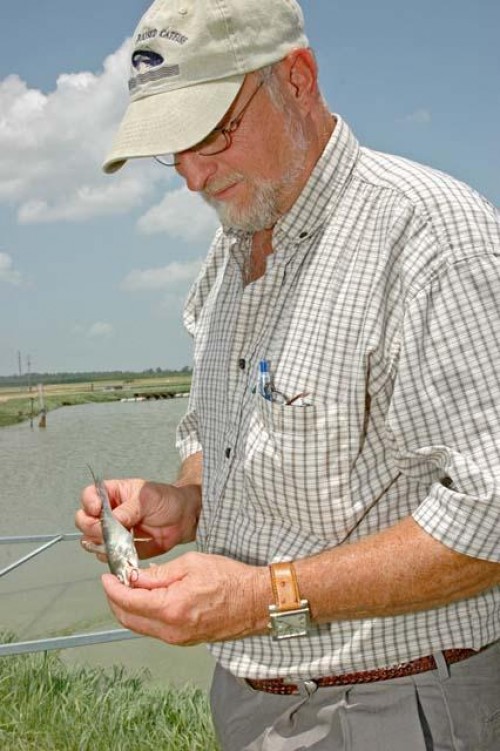Kids Day 2007 promises fun for all
July 3, 2007þStocks of Local Interest
July 5, 2007(AP) A federal quarantine on farm-raised seafood from China vindicates Louisiana’s inspection and confiscation of such products and will help it and two other states enforce their inspection programs, Louisiana’s agriculture secretary says.
“It makes it easier because now everybody is going to be required to do it. At one time, I think only Louisiana, Mississippi and Alabama were doing it,” Bob Odom said Thursday.
The state Agriculture and Forestry Department requires China and Taiwan to run their own tests on seafood exports, then performs random checks, Odom said. The seafood must be free from banned antibiotics and other products before it can be sold or shipped.
At one point, the department had 1 million pounds of seafood tied up while inspectors checked for banned antibiotics and other products, Odom said. But the amount warehoused is much lower now.
Piazza’s Seafood World sued the department claiming it doesn’t have authority for the inspections.
Odom said he couldn’t believe the FDA is taking action.
The FDA is detaining farm-raised catfish, a related fish called basa, shrimp, dace and eel unless it is proven free of the antibiotics nitrofuran and fluoroquinolone, as well as the antifungals malachite green and gentian violet. Of particular concern are the fluoroquinolones, a family of widely used human antibiotics that the FDA forbids in seafood in part to prevent bacteria from developing resistance to these important drugs.
Wenonah Hauter, executive director of Food & Water Watch, dismissed the FDA announcement as “window dressing.”
“We think that the FDA is responding to all the criticism to the lack of inspection for seafood imports,” Hauter said. “We think it falls pretty short of what needs to be done.”
The inspections are needed because 80 percent of the seafood consumed in the United States is imported, according to Food & Water Watch. Commercial farms in Asia and Latin America provide the bulk of the imports.
But the FDA inspected less than 2 percent of the imports last year, Hauter said. Meanwhile, European countries inspect 20 percent to 50 percent of seafood imports. Japan inspects 20 percent.
“We’re basically calling for a ban on Chinese seafood until the FDA can inspect what’s coming in,” Hauter said.
The problem is that the demand is so high that producers cram so many fish and shrimp into their ponds that unsanitary conditions result, spreading disease and parasites, according to the consumer watchdog group.
To prevent this, many farms use antibiotics and chemicals that often are illegal in the United States and that can leave residue in the seafood.
China shipped $1.9 billion worth of farm-raised fish and shrimp to the United States last year, nearly three times the amount in 2001, according to the U.S. Department of Agriculture. China’s major seafood exports are shrimp, tilapia, scallops, cod and pollock, According to the FDA, none of the seafood on the detention list can enter the United States without being shown to be safe. Importers must provide the results of independent laboratory tests showing the fish are free of banned antibiotics, antifungals and other products.
However, Hauter said the FDA is allowing Chinese government labs to perform the tests.
“With current events, how do we know a third-party lab in China is trustworthy and doing an appropriate test” Hauter said.
So far this year, China’s defective or tainted products have included toy trains covered by lead paint; truck tires whose belts were not glued together; toothpaste that contained an antifreeze ingredient; and dog food made with melamine, a chemical used in making plastic.
In a rare acknowledgement of criticism, the Chinese government Thursday released a statement saying its products’ safety is guaranteed.
A catfish farmer examines a young, pond-raised catfish. The number of states cracking down on farm-raised seafood from China continues to grow. * File photo • Tri-Parish Times.







